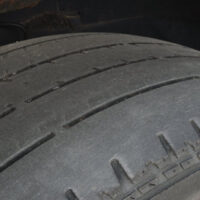Tire Maintenance And Hydroplaning Risks

Wet weather presents significant challenges for drivers, with hydroplaning being a particularly dangerous risk. Hydroplaning occurs when a vehicle’s tires can’t make contact with the road surface due to a layer of water, leading to loss of control.
Because Miami experiences seasonal wet weather, being aware of the risks of hydroplaning and the importance of tire maintenance can help drivers navigate rain-soaked streets. Combining cautious driving with diligent vehicle upkeep is the best strategy, but if you do find yourself in an accident despite taking safety precautions, consult with a knowledgeable Miami personal injury lawyer for support and guidance.
The Risks of Hydroplaning and Vehicle Maintenance
Frequent rain showers and occasional tropical storms create ideal conditions for hydroplaning. When roads become slick with rainwater, the risk of tires losing traction increases dramatically. Hydroplaning can lead to sudden and uncontrollable skidding, making it difficult for drivers to steer or brake effectively. This can result in serious accidents, particularly on busy highways or during heavy rain.
To minimize the risk of hydroplaning, drivers should adjust their behaviors, such as driving slower. Slowing down by just 5-10 mph can significantly reduce the risk of hydroplaning. It is also helpful to keep a greater distance between your car and the vehicle ahead, allowing more time to react if the other driver encounters trouble. If your car does start to hydroplane, stay calm and ease off the accelerator. Do not slam on the brakes.
While driving adjustments are essential, maintaining your vehicle, particularly your tires, is equally key to preventing hydroplaning. Some tire maintenance factors to keep in mind include the following.
- Tire tread depth. Tires with adequate tread depth are better at channeling water away and maintaining contact with the road. In Florida, the legal minimum tread depth is 2/32 of an inch, but for optimal safety, a tread depth that falls below 4/32 of an inch is advisable.
- Proper inflation. Under-inflated tires have less effective contact with the road, increasing the risk of hydroplaning. Regularly check your tire pressure and keep it at the manufacturer-recommended level.
- Tire rotation and alignment. Regular tire rotation ensures even wear, which maintains consistent traction. Proper wheel alignment also ensures that your tires meet the road at the correct angle, optimizing performance and safety.
- Quality tires. Investing in high-quality tires designed for wet conditions can make a significant difference. Tires with specialized tread patterns and rubber compounds are designed to handle water more efficiently.
Beyond tires, other car upkeep that is key for wet conditions include ensuring windshield wipers are in good condition and vehicle’s lights are working correctly to promote visibility when stormy conditions arrive.
Weather-Related Accidents and Legal Support
Hydroplaning is an accident risk, especially during the city’s frequent wet weather. Miami personal injury lawyers are aware of poor weather driving risks and know how to connect individuals involved in weather-related conditions with the compensation they deserve.
Are you recovering from a weather-related crash injury? Have a conversation with the attorneys at Spencer Morgan Law. Experienced Florida injury lawyers can fortify your claim. Call 305-423-3800 to schedule your confidential consultation.
